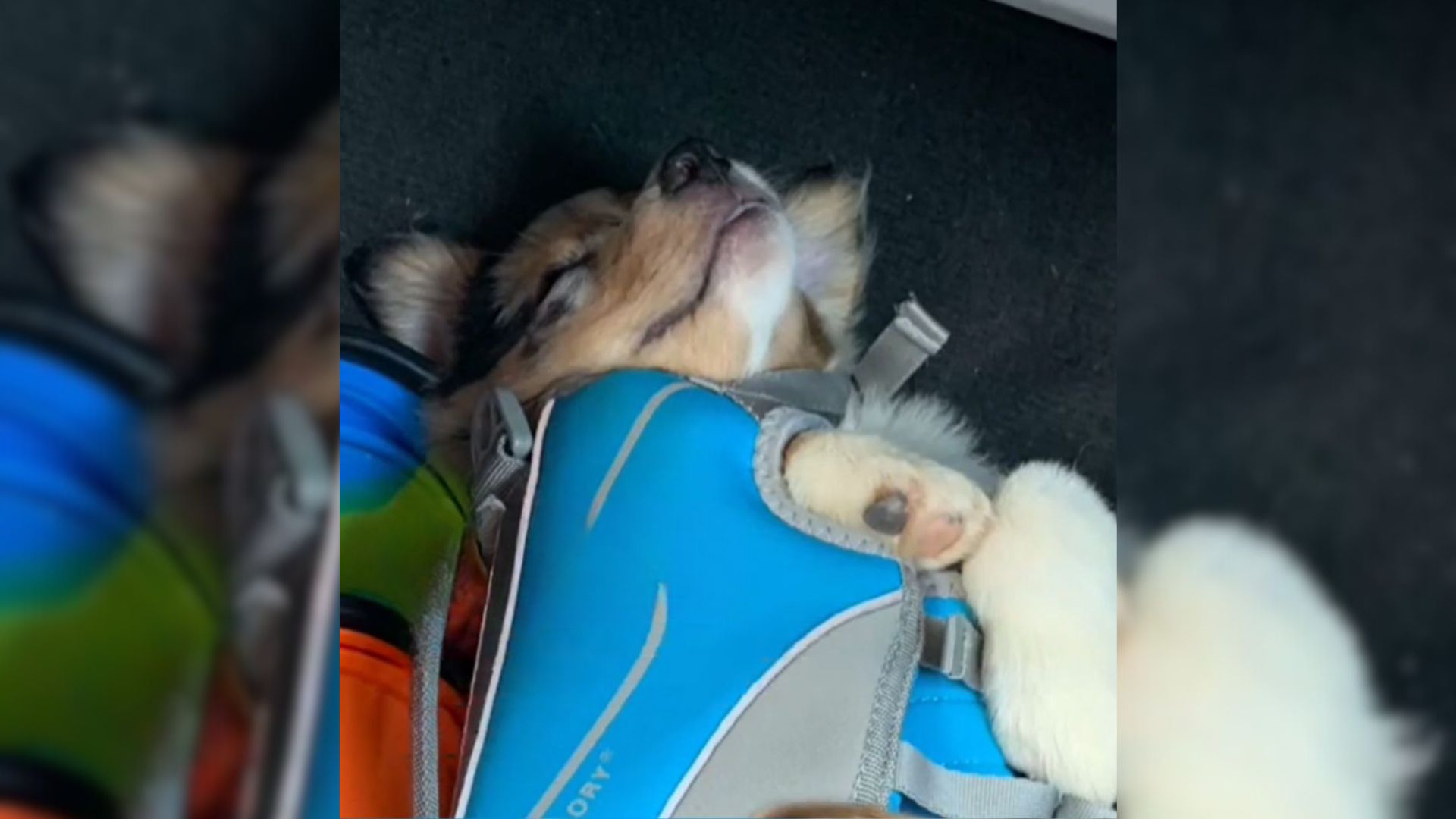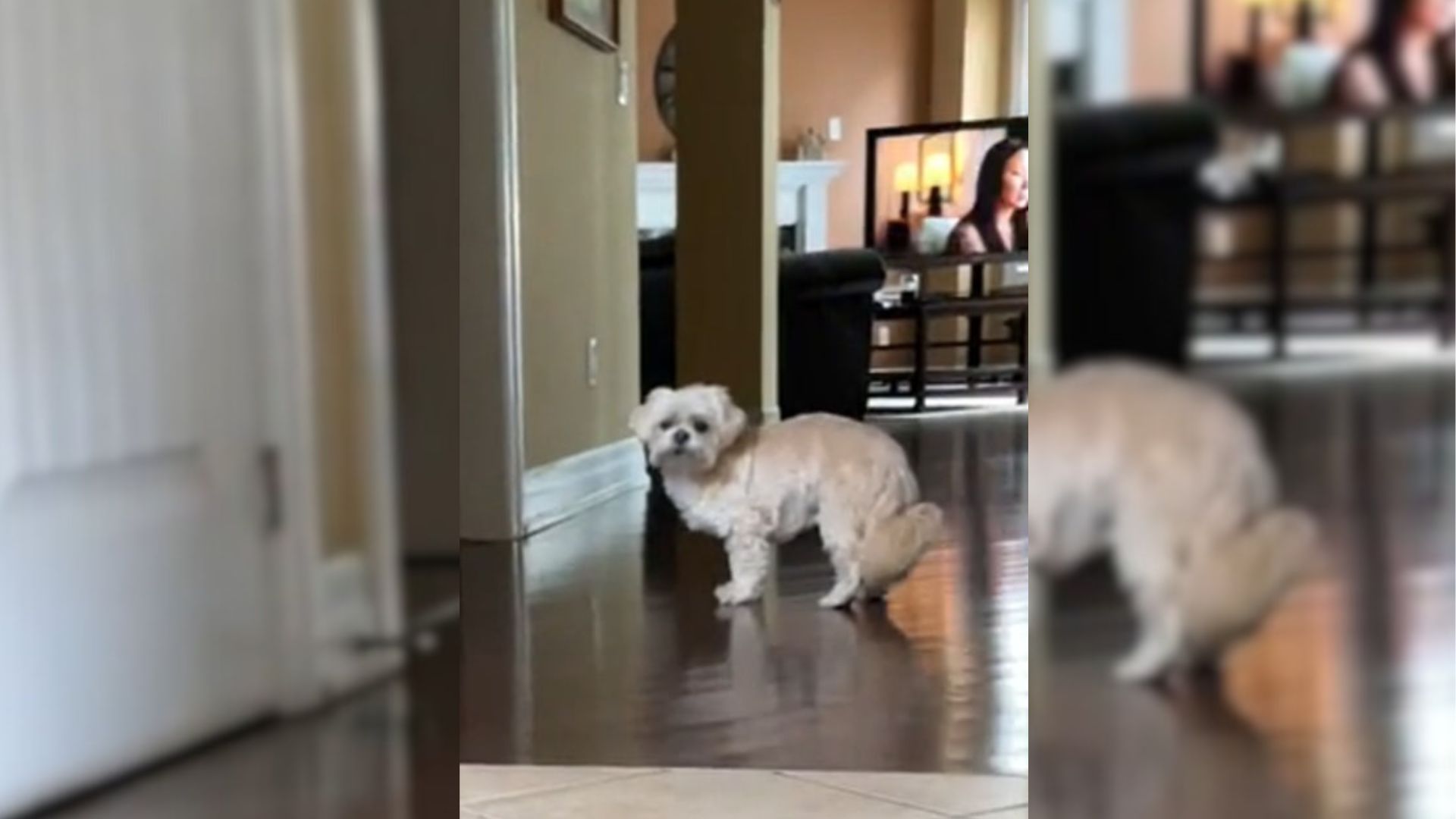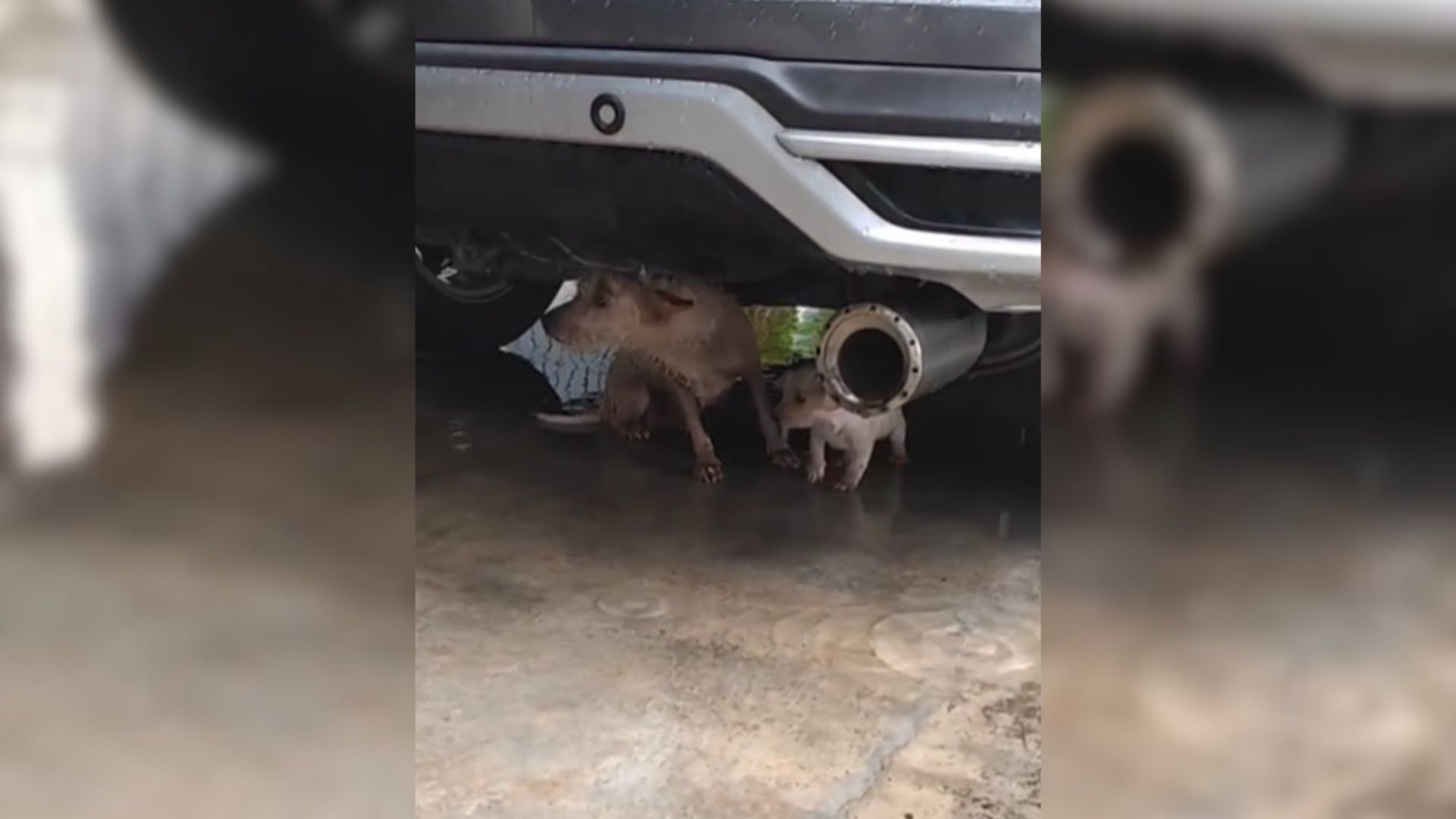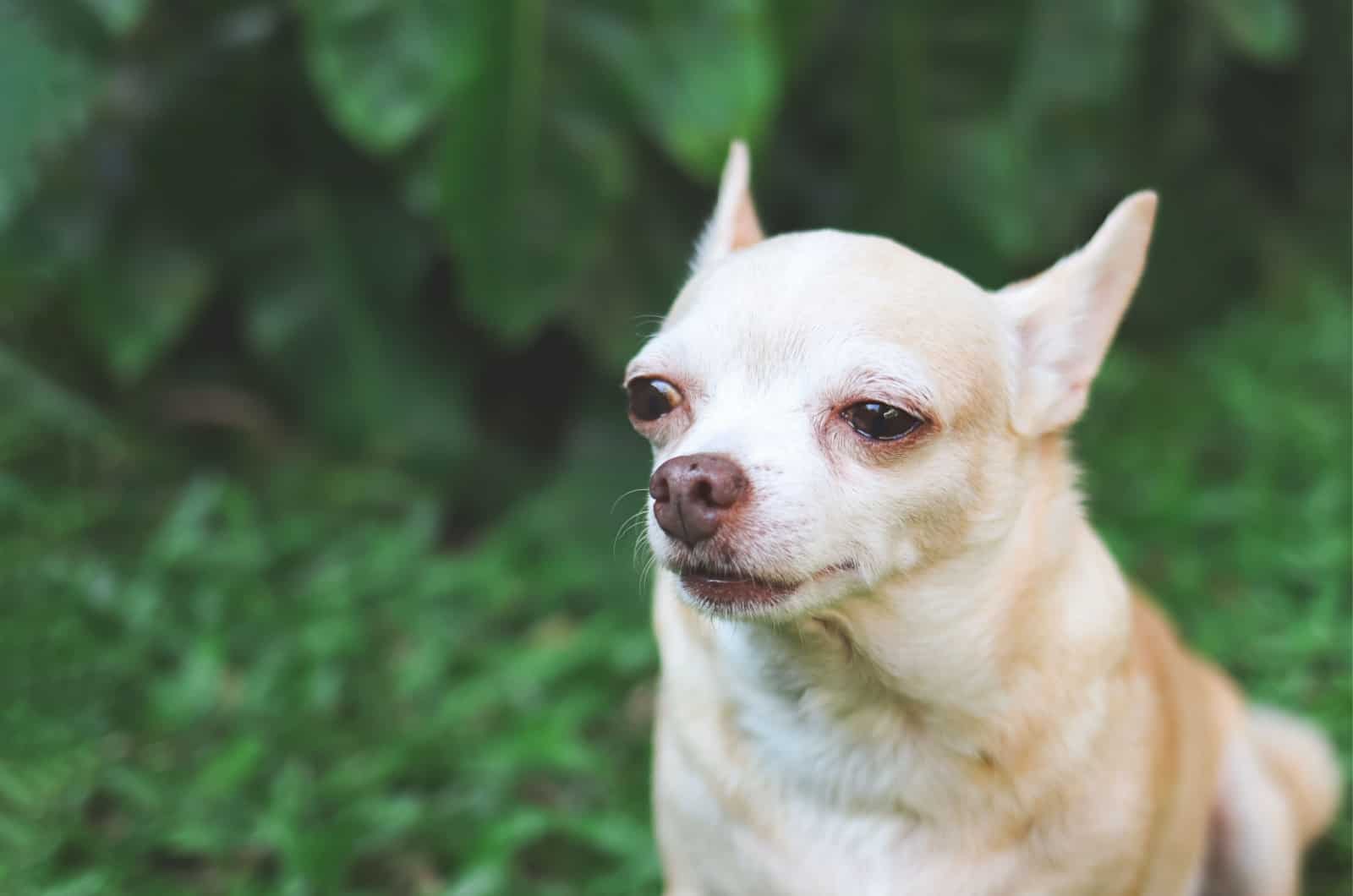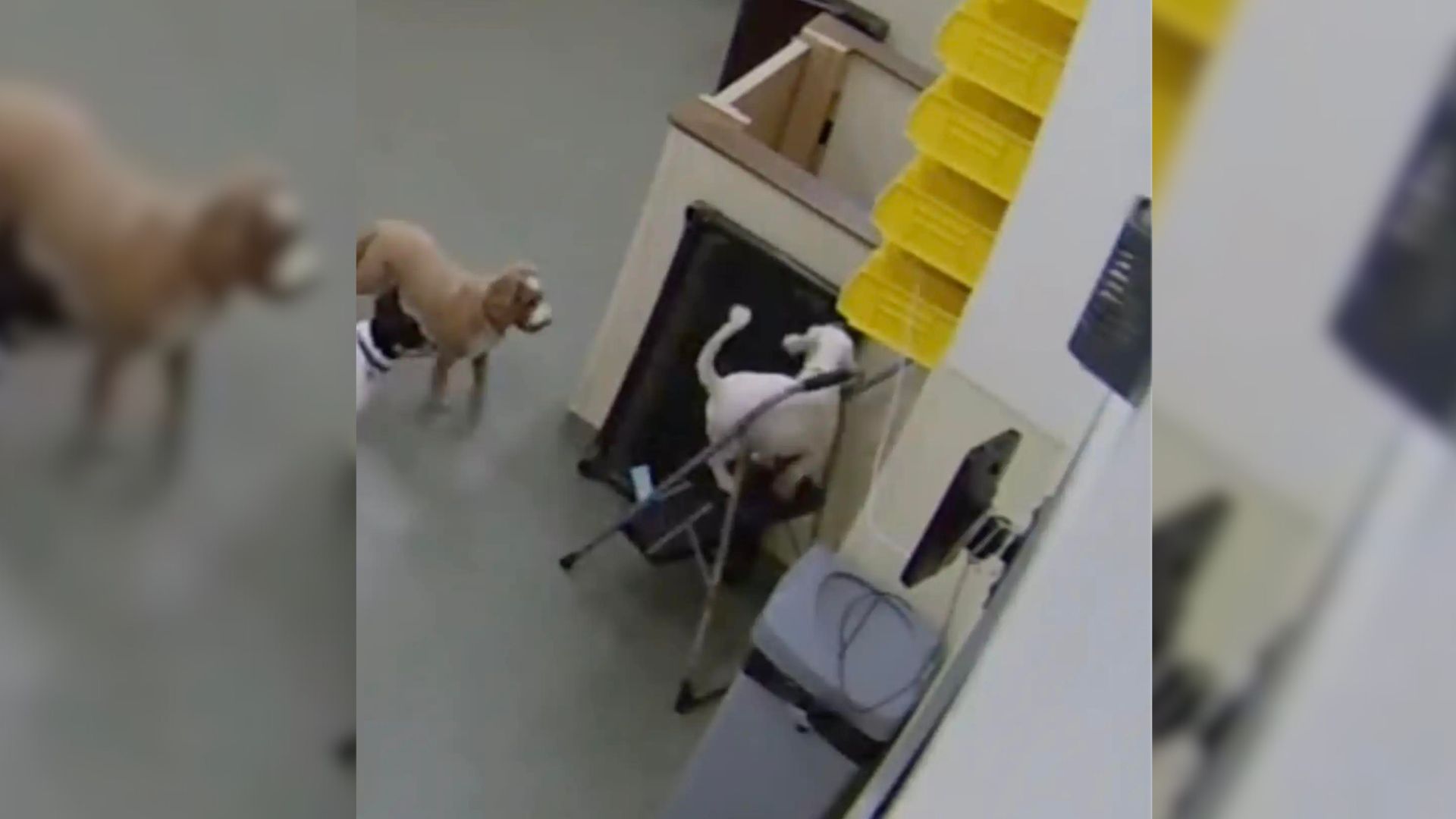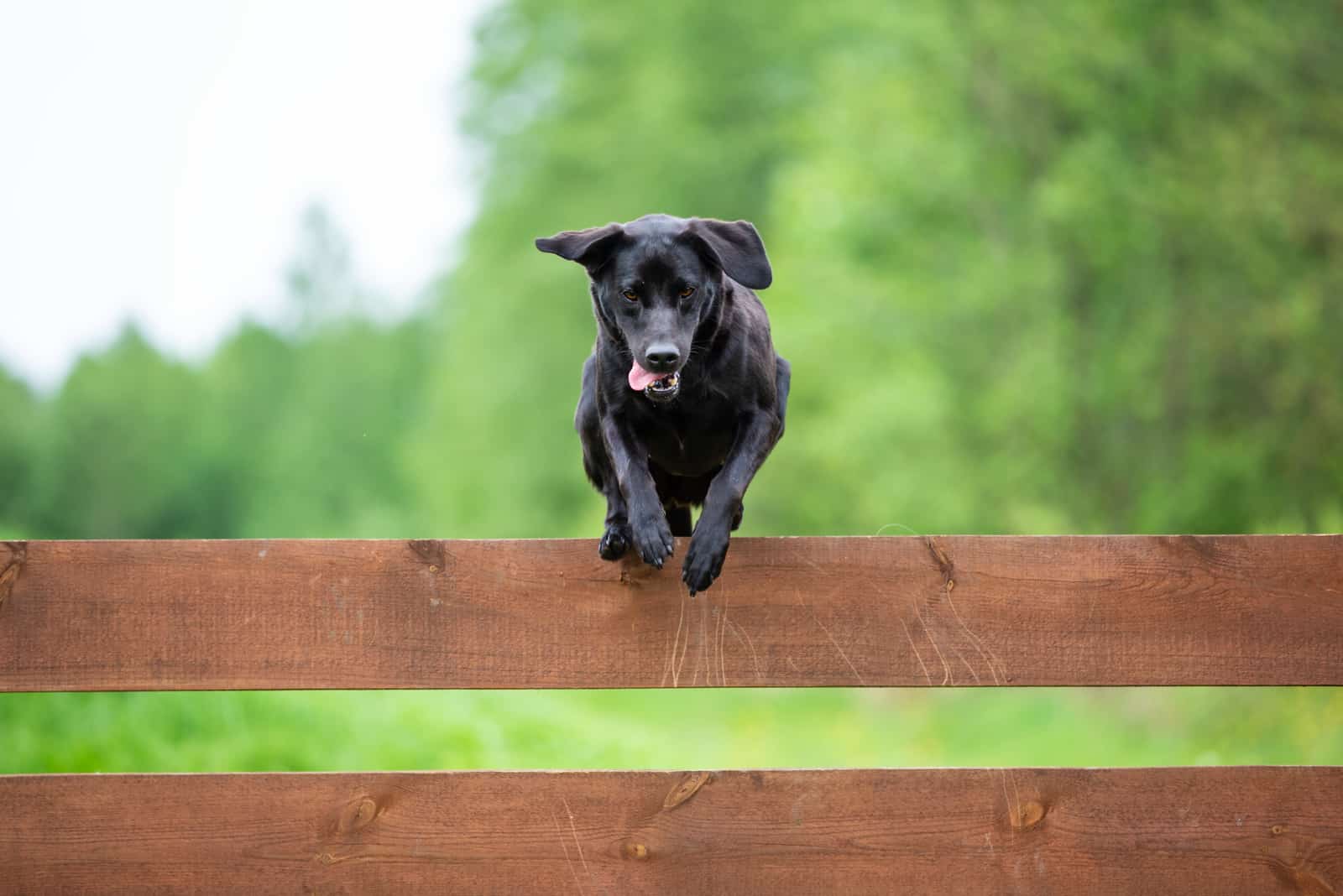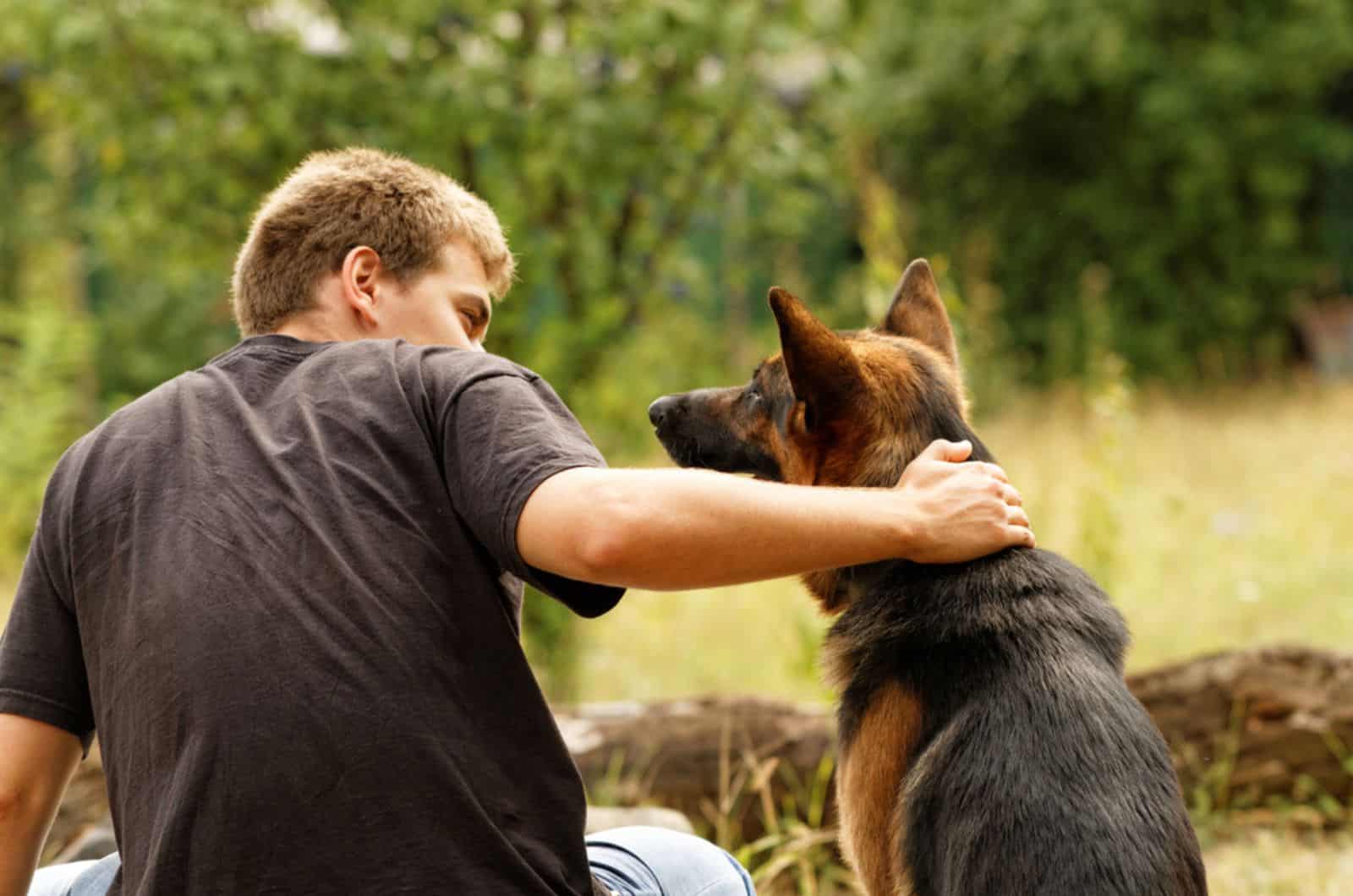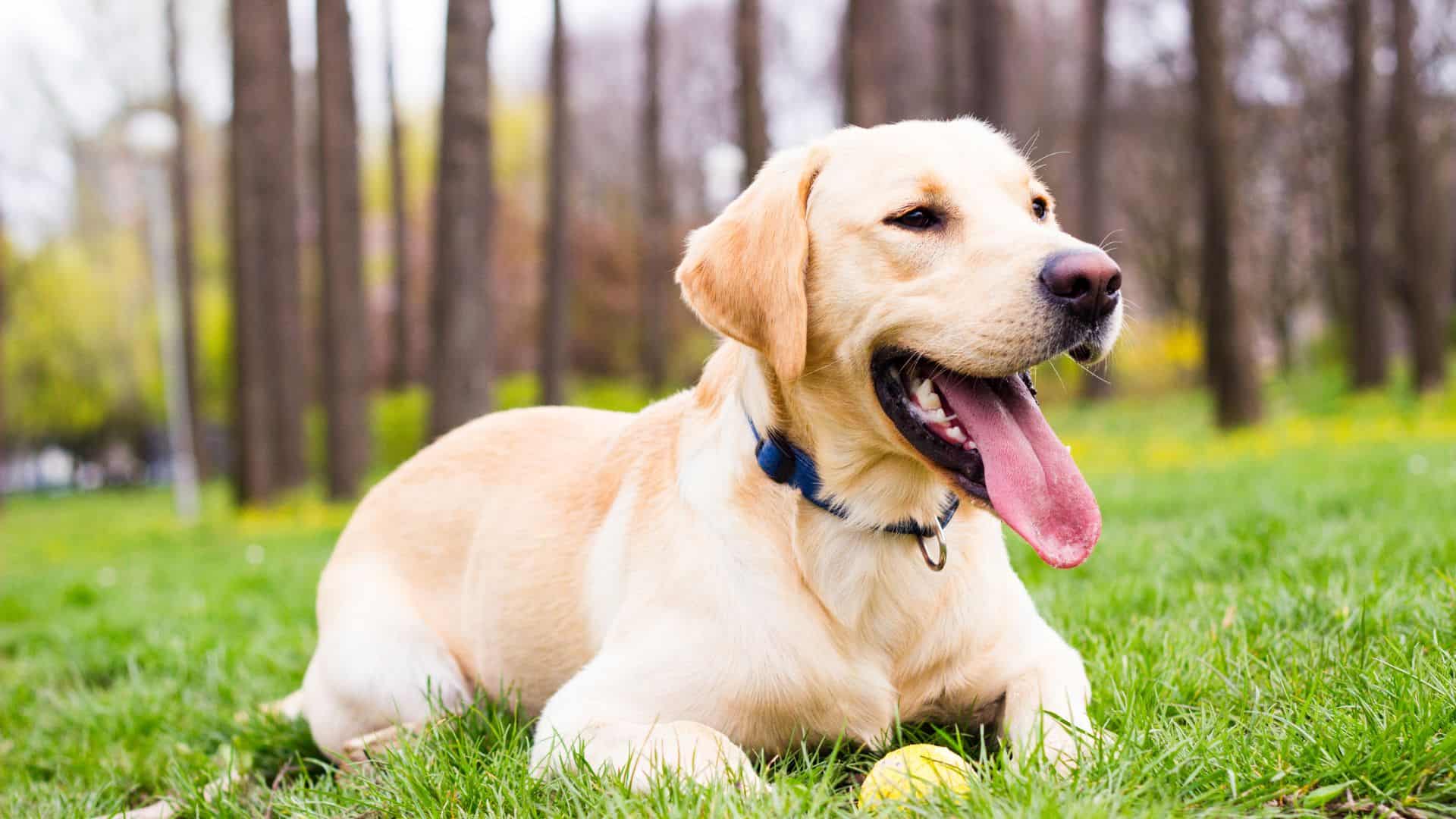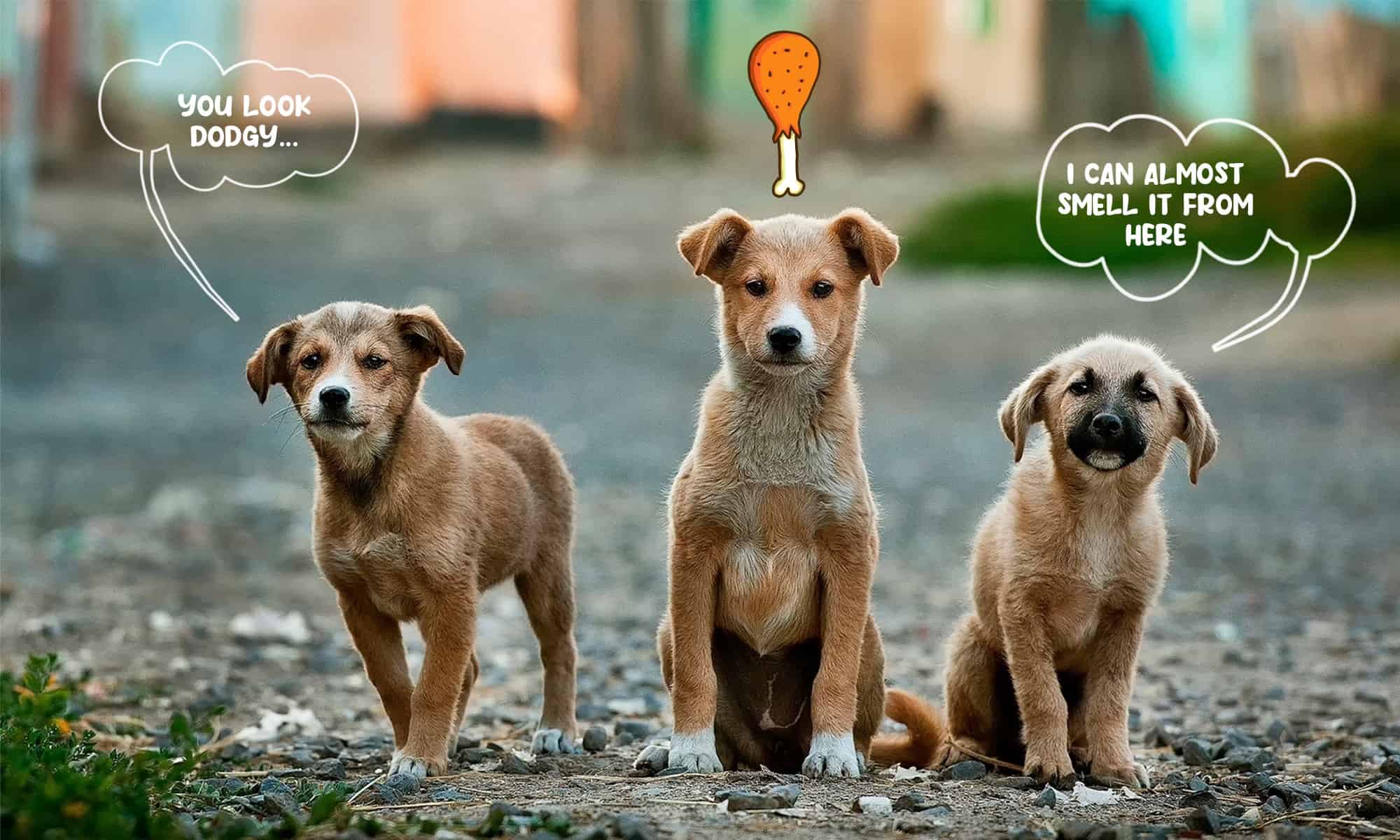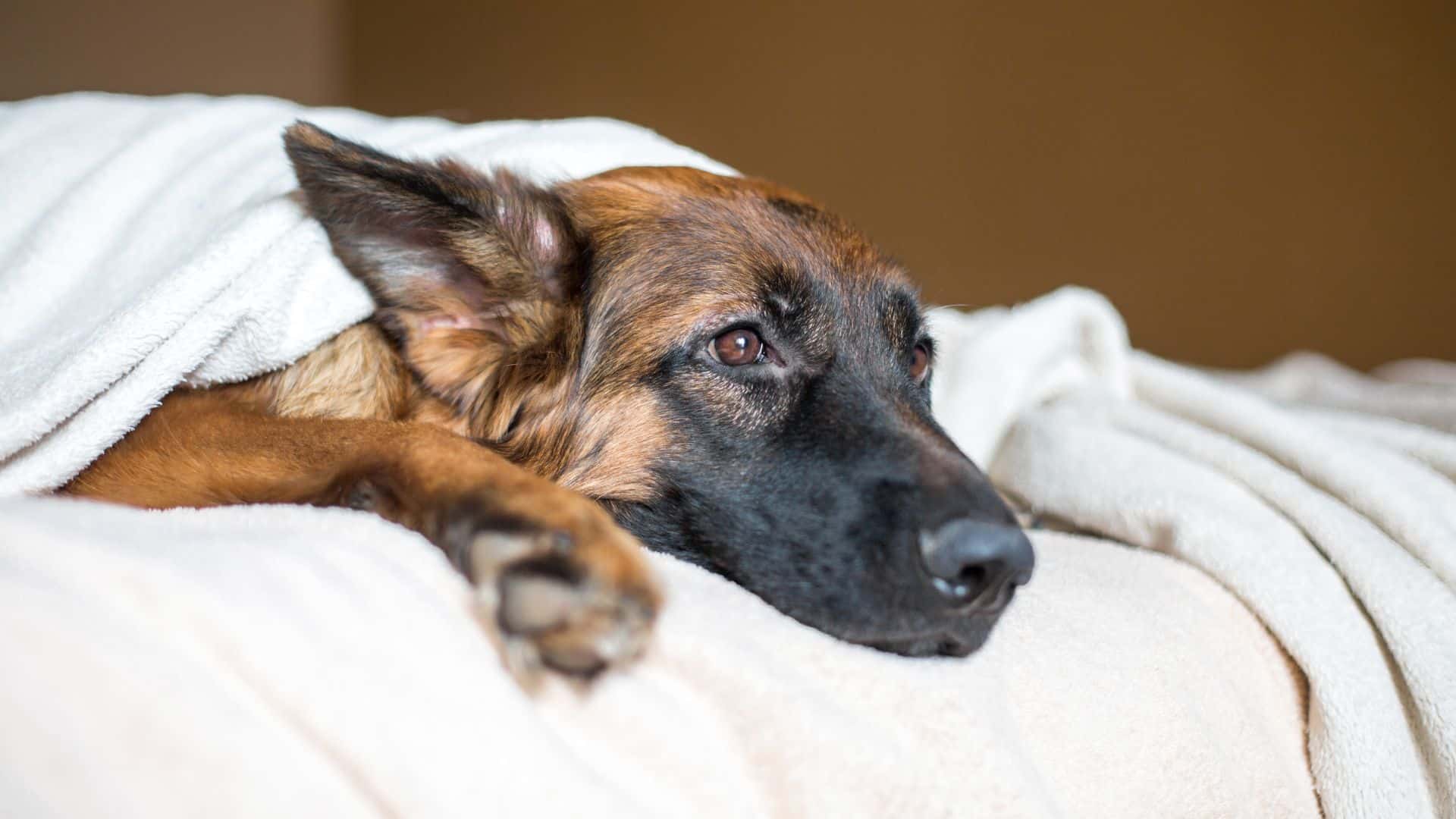Did you know the U.S. statistics on dog bites recorded 38 attacks and even 1 death as a result of Australian Shepherd biting? Crazy, isn’t it?
While it took me by surprise, I soon realized that, just like German Shepherds, Aussies inherited a strong instinct to guard and protect.
These instincts are not necessarily deadly, but they can get pretty ruff if a dog is not socialized at the right time.
To get to the bottom of the dog biting behavior, we have gathered 7 reasons why Australian Shepherds bite so much. We’ve also included 3 types of dog bites to help you distinguish innocent nibbling and when this dog means serious business.
Stick around to find out!
Why Does My Australian Shepherd Bite So Much 7 Common Reasons
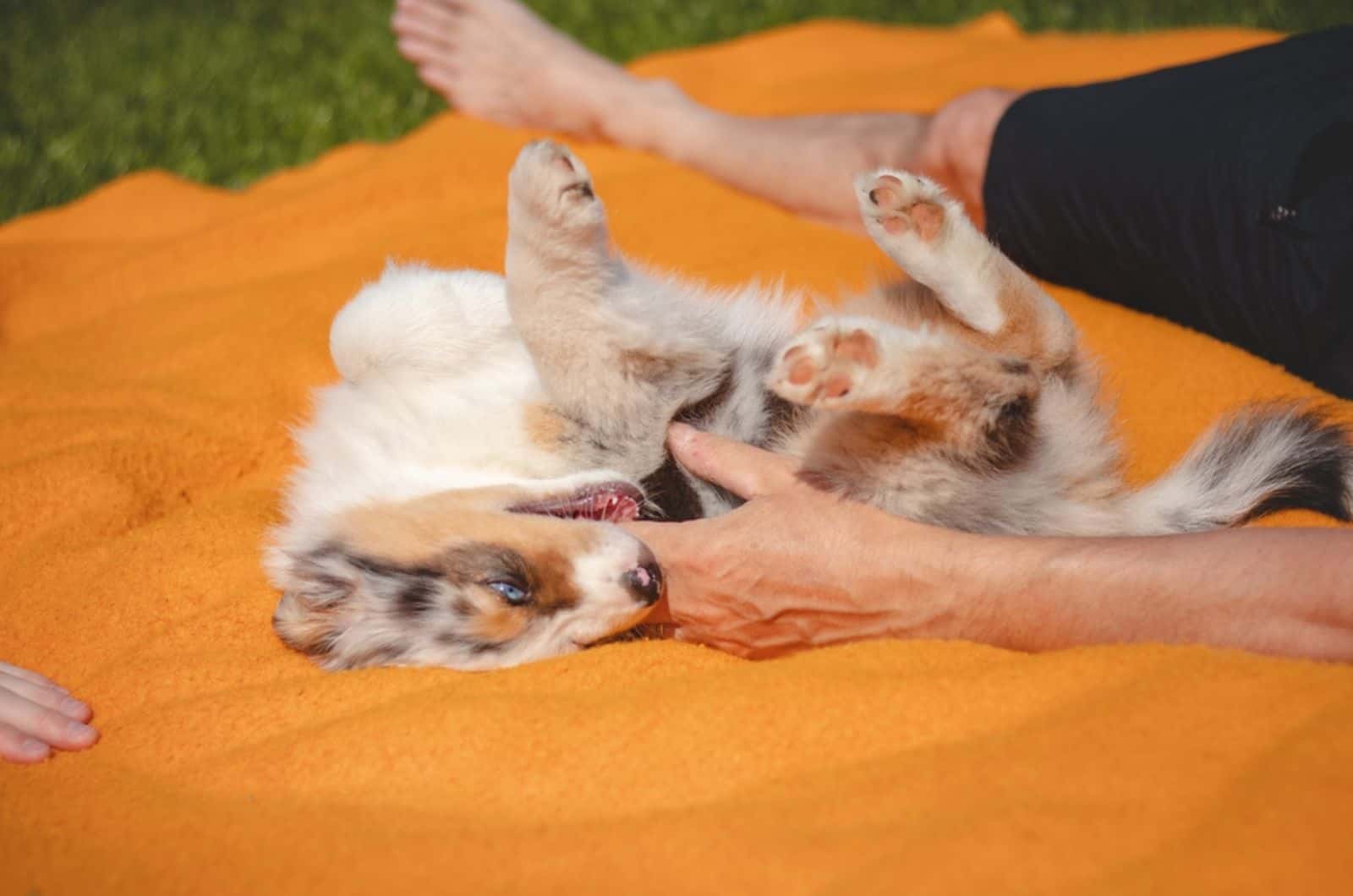
Are you tired of dodging your puppy’s sharp teeth? Still trying to figure out why your Australian Shepherd bites so much? You’re at the right place!
Here are 7 common reasons why your Aussie bites so much!
1. Herding You Like Sheep
Let’s start off by saying that the Australian Shepherd is a shepherd dog breed (obviously) that is super-famous for its strong herding instincts. They are among the best cattle drovers on the planet!
Mind you, this inherited behavior is by no means aggressive. It is simply a natural instinct to herd cattle and they do it by biting and nipping on sheep or cow’s ankles. That way they would move them to a desired location.
If you are a proud owner of a purebred Aussie, or even an Aussie mix, your pup may sometimes see you as cattle and try to nibble on your ankle as you move!
2. Your Personal Bodyguard
Your Australian Shepherd is like a canine superhero in disguise – he is always on the lookout for threats to you.
But beware, there are times when these pups might mistake friendly strangers for villains and give them a playful nip or two! Not all friendly strangers will understand their nipping as playful, so that’s another thing you have to keep in mind.
We understand that our furry friends just want to keep us safe and sound, but if you see an Aussie getting a little too protective, it might be the right time to seek a dog trainer!
3. Protecting Their Valuables
Aussie pups have a knack for finding value in anything from chew toys to tasty dishes. If anyone dares to step near these prized possessions, this pooch may bark and bite.
That’s resource guarding, for short. It is an instinct our domesticated canines inherited from their wild ancestors as a survival skill. But now, when they have enough yummy food, there is no need for this instinct to kick in.
This is why resource guarding in dogs is considered a behavioral issue. It is like a ticking bomb, a bite waiting to happen!
4. Fear Is Their Worst Enemy
Although Aussies are brave guard dogs, sometimes they can feel afraid and bite out of nowhere. It is like when something startles you and you automatically grab onto your friend’s arm for protection!
Australian Shepherds bite out of fear to protect themselves, just like how you would cling to your friend or anyone near you at that moment.
As a dog owner, it is important to understand their fear and help your pooch feel safe. You can teach them that biting is not the way to go when they’re feeling scared or anxious!
5. Toothache Trouble
Young Australian Shepherd puppies go through a teething phase where they love to nibble on everything in sight. Just like human babies!
While nibbling behavior may not be as pronounced in other dog breeds, Aussies combine their herding instincts with their teething period which makes it double trouble! Innocent nibbling can turn into biting, especially if it is not prevented on time.
Luckily, puppy nibbling can be easily redirected with chew toys, training, and quality playtime!
6. Stressed Out Pup
Australian Shepherd dogs can get a bit ruff when they are feeling a bit stressed out. Stress can be caused by anything, from loud noises to new, unknown people.
When Aussies are feeling so overwhelmed, they might turn to bite as a way to cope.
Researchers have uncovered that the main reason behind Fido’s bites is fear and anxiety (77% to be exact).
This just goes to show that our dog’s feelings and their bond with us humans are major players in this biting business.
7. Puppy Fury
If your Australian Shepherd can’t reach that squirrel on the tree or play with his favorite toy because he is being held back by you or the crate, he might feel a bit frustrated and angry.
This Aussie will show his frustration by biting you or someone who is near him.
This type of biting behavior is sometimes called a “redirected bite,” or more commonly “redirected aggression“. In other words, the Aussie puppy is simply redirecting his frustration to what is holding him back.
Different Types Of Aussie Bites
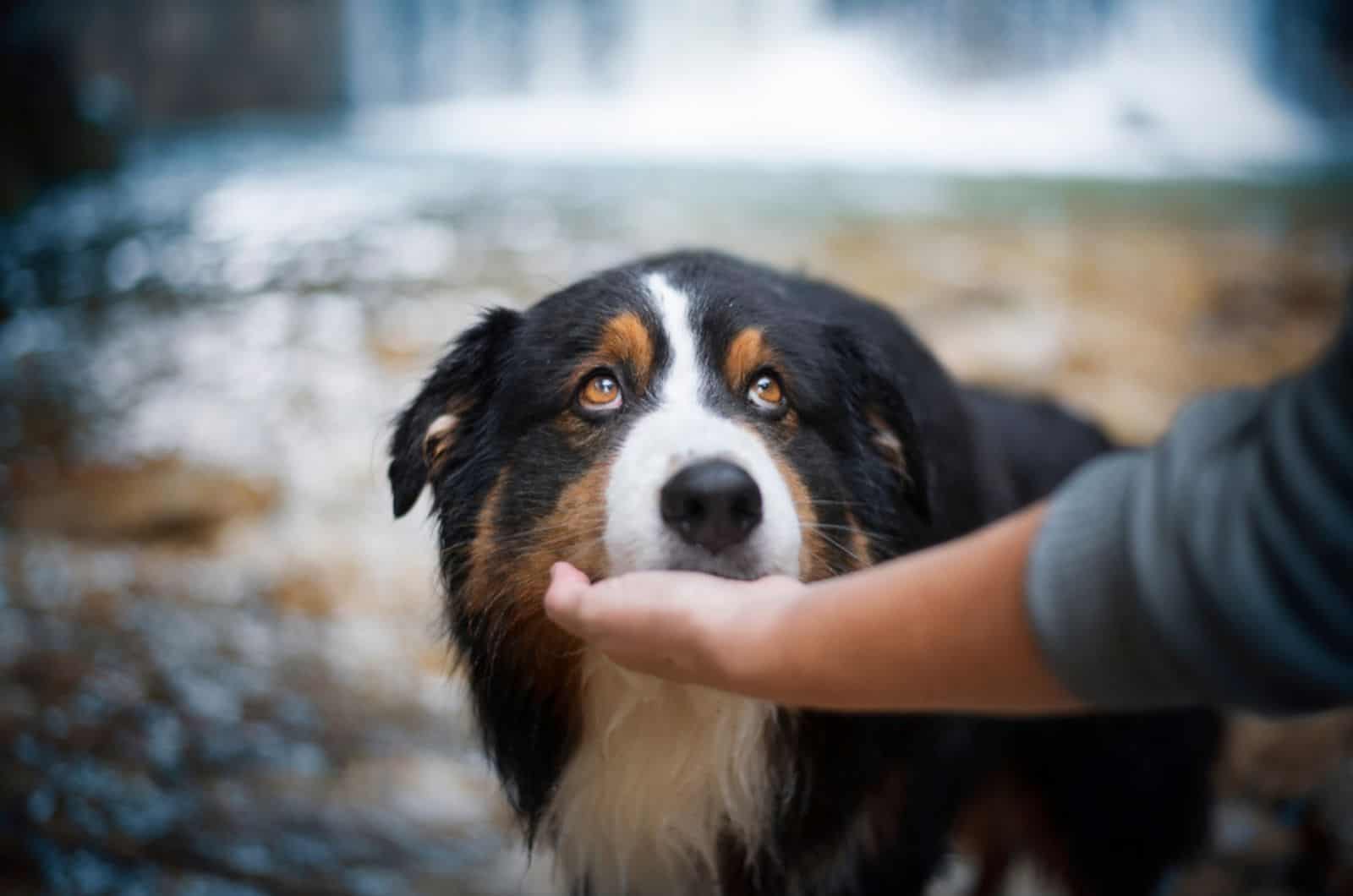
Aussies may be medium-sized dogs, but their bites can come in many shapes and sizes. Depending on how they are feeling, these pups can bite with different forces.
Let’s take a quick tour of the different types of Australian Shepherd bites!
1. Innocent Nibbles
Innocent Aussie nibbling is when these pups are simply exploring the world with their mouths. Think of it like a human baby putting everything they find in their mouth to learn about it. No harm meant, just curious pups at work!
This type of nibbling behavior usually starts when Australian Shepherds puppies reach around 3-6 months of age. Don’t worry, this is a perfectly normal phase, and they’ll grow out of it as they get older.
However, you should not encourage your pup to nibble on you during this phase! Replace your hand with chew toys!
2. Playful Bites
When Australian Shepherd dogs play with each other, they often use their mouths to grab and release. It is super fun, and it’s a natural way for them to interact and bond.
You may see them biting each other’s necks, nibbling on each other’s ears, and so on.
Thanks to this type of bite, Aussie puppies learned proper bite inhibition. Therefore, playful bites are usually soft and gentle, and they don’t hurt at all!
3. Aggressive Bites
Oh no, not the aggressive bites!
Australian Shepherds are not among the most aggressive dog breeds, but they will aggressively bite if they are feeling threatened or defensive, and are using their teeth to protect themselves.
I mean, any dog will bite out of anger, frustration, or anxiety. These pups aren’t any different.
Aggressive Aussie bites can be very serious, and in some cases even lethal. Therefore, it is very important to address this unwanted behavior as soon as possible.
How To Train Your Australian Shepherd Not To Bite You
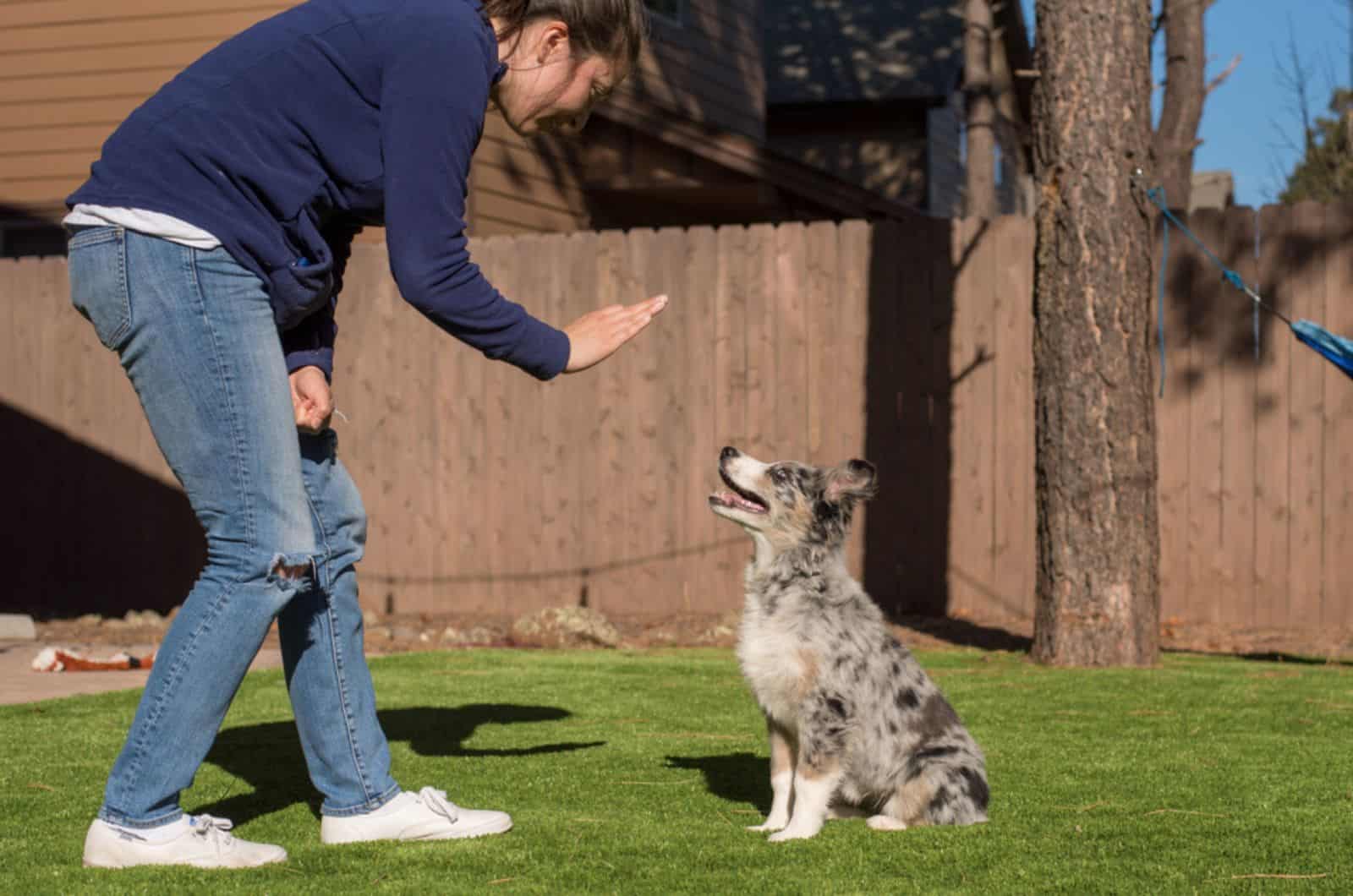
Australian Shepherds are full of energy and love to play, but without proper training, they can become a handful!
These pups have a natural herding instinct and, if not trained early on, they can become a bit of a rascal in public places.
To teach your Aussie not to bite, you will have to stick to three most important things:
- Early socialization
- Positive reinforcement training
- On spot disciplining
Aussies love treats and praise, which makes positive reinforcement training a win-win for both you and your pup! So, instead of using harsh training methods, stick to the good stuff.
The most important thing is to socialize your puppy early. This includes having them meet different dogs, people, and even other animals such as cats.
Establishing new and healthy friendships will make this pupper outgoing, calm, and less likely to bite.
When it comes to on spot disciplining, it speaks for itself. When your Aussie does something bad, immediately react to his action. For example, if he starts to nibble on your ankles while you walk, stop walking right away to let him know you are not proceeding if he continues to do so.
Also, try to redirect this behavior to a chew toy, play of tug-of-war, or a good ol’ play of fetch.
In Conclusion
Hopefully, we have helped you figure out why your Australian Shepherd bites so much. Now, it is up to you to find the root of his nibbling behavior. While all of these pups inherit herding instincts, that does not mean that they should nip on your ankles
Remember, understanding if the biting is coming from positive or negative behavior can make it easier to tackle this problem. Training your Aussie puppy early to not bite is an important step in ensuring a happy and healthy relationship between you two!
So, make sure to figure out all the reasons why these incredible puppies bite and learn to distinguish the good from the bad bites!

